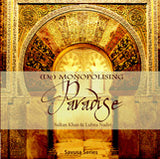
The House of Tshatshu
In rural South Africa today, there are signs that chieftaincies are resurging after having been disbanded in colonial times. Among these is the amaTshatshu of the Eastern Cape, which was dis-established in 1852 by the British, and recognised once more under the democratic ANC dispensation, in 2003.
Bawana, leader of the amaTshatshu, was the first Thembu chief to cross the Kei River, in the mid-1820s, to open up the northeastern frontier of the Cape Colony. His successors and followers fought the British in the frontier wars but were defeated. In tracing his history and that of his descendants this book explores the meaning of chieftainship in South Africa-- at the time of colonial conquest, under apartheid’s Bantustans, and now, post apartheid. It illustrates not only the story of a beleaguered and dispossessed people but also the ways in which power is constructed. In addition, it is about gender and land, and about belonging, identity and naming. The book unsettles accounts of chiefly authority, unpacks conflicts between royal families, municipalities and government departments, and explores the impasse created by these quarrels. It retrieves evidence that the colonial state sought to obliterate and draws the disempowered back into the process of making history.
The authors are both closely associated with the land and the people of the amaTshatshu. One is a historian, who grew up on their land, and the other is counsellor to the chief. As such, they bring their knowledge and respective skills to bear in this book. The collaboration of a black and a white author sets up a creative tension which animates the text and is a powerful element of the book.
Bawana, leader of the amaTshatshu, was the first Thembu chief to cross the Kei River, in the mid-1820s, to open up the northeastern frontier of the Cape Colony. His successors and followers fought the British in the frontier wars but were defeated. In tracing his history and that of his descendants this book explores the meaning of chieftainship in South Africa-- at the time of colonial conquest, under apartheid’s Bantustans, and now, post apartheid. It illustrates not only the story of a beleaguered and dispossessed people but also the ways in which power is constructed. In addition, it is about gender and land, and about belonging, identity and naming. The book unsettles accounts of chiefly authority, unpacks conflicts between royal families, municipalities and government departments, and explores the impasse created by these quarrels. It retrieves evidence that the colonial state sought to obliterate and draws the disempowered back into the process of making history.
The authors are both closely associated with the land and the people of the amaTshatshu. One is a historian, who grew up on their land, and the other is counsellor to the chief. As such, they bring their knowledge and respective skills to bear in this book. The collaboration of a black and a white author sets up a creative tension which animates the text and is a powerful element of the book.
We Also Recommend





